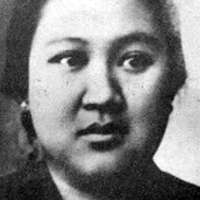 |
| Foto google |
Dewi Sartika was born on December 4, 1884, in Bandung. She came from a Sundanese priyayi family, with parents Nyi Raden Rajapermas and Raden Somanagara. Despite going against traditional customs at the time, her parents insisted on sending her to a Dutch school. After her father's passing, Dewi Sartika was raised by her uncle, who served as a regent in Cicalengka. There, she acquired knowledge about Sundanese culture, while her exposure to Western culture came from a Dutch Assistant Resident.
From a young age, Dewi Sartika demonstrated talent and dedication in the field of education. While playing behind the regent's office building, she often took on the role of a teacher for the children of the regent's servants. Using a train carriage door, charcoal, and broken tiles as learning aids, Dewi Sartika taught them how to read, write, and speak Dutch.
By the age of ten, Dewi Sartika had mastered reading and writing in Dutch, which became a topic of discussion in Cicalengka. This skill was remarkable for the time, as no children, especially girls from ordinary families, had similar abilities. Dewi Sartika successfully proved that educational capabilities were not dependent on social background or gender.
As she reached adolescence, Dewi Sartika returned to Bandung to join her mother. Her spirit and determination to fulfill her aspirations grew stronger. Support and a shared vision also came from her uncle, Bupati Martanagara. However, traditional barriers limiting women's roles at the time made her uncle worried and faced difficulties. Nevertheless, with unwavering perseverance and determination, Dewi Sartika convinced her uncle and obtained permission to establish a school for girls.
In 1906, Dewi Sartika married Raden Kanduruan Agah Suriawinata, a teacher at the Karang Pamulang School, which at the time was a Teacher Training School. This marriage was also based on shared visions and aspirations in the field of education.
Since 1902, Dewi Sartika began pioneering education for women. In a small room behind her mother's house in Bandung, Dewi Sartika taught her female family members. The lessons included sewing, cooking, reading, writing, and more.
After consulting with Bupati R.A. Martenagara, on January 16, 1904, Dewi Sartika opened the first Women's School in the Dutch East Indies, named Sakola Istri. The teachers involved in the establishment of this school were Dewi Sartika, assisted by her two missionary sisters, Ny. Poerwa and Nyi. Oewid. Initially, the school had 20 students and used a room in the Bandung regent's pavilion.
A year later, in 1905, the school added more classes and relocated to Otista Street, Bandung. The school continued to grow, and in 1912, it changed its name to Dewi Sartika Women's School.
Dewi Sartika not only focused on formal education but also included character education and practical skills in the school's curriculum. She aimed to prepare her students to become independent, skilled women capable of contributing to society.
In addition to establishing schools, Dewi Sartika was active in social activities and women's organizations. She was one of the founders and active members of the women's organization "Poetri Hindia," established in 1909. This organization aimed to improve the status and education of women and advocate for women's rights.
Dewi Sartika also advocated for gender equality in education. She believed that women had equal potential to men and deserved access to quality education. She fought against the stigma and discrimination against women in the field of education.
Dewi Sartika's struggle continues to be felt today. Her name is immortalized in various educational institutions in Indonesia, such as the Indonesian University of Education (UPI), formerly known as IKIP Bandung. Additionally, in 2009, the Indonesian government issued a commemorative stamp honoring Dewi Sartika for her contributions.
Dewi Sartika serves as an exemplary role model for Indonesian women in their fight for education and gender equality. Through her dedication in establishing schools and advocating for women's rights, she has made valuable contributions to the progress of education in Indonesia.



0 Komentar